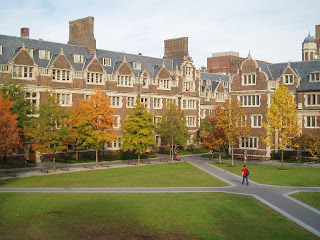Last week, I began my topic on criminal justice, and ended up talking about colleges with these types of degrees. Now, I want to go into more detail about what are some requirements that you need in order to get into these certain colleges, and what kind of courses you would take to get a criminal justice degree. My last post had a link to the top 20 criminal justice colleges, and I chose to research American University because I have never heard of this college. I looked it up and saw that it is located in Washington D.C., which I bet is the best place to get a criminal justice degree. I was on their website when I stumbled upon this beautiful photo of the campus.
I was looking up some of its basic information, and found its, "Admitted Student Profile for Fall 2013", which will probably give you an idea what kind of grades you need to get in. The average GPA was 3.56-4.02, the average SAT was 1210-1387, and the average ACT was 27-31. From these results, you can see that American University is quite a selective school. Then I researched some of its minimum admission requirements and found out that you need 4 years of English, 3 years of math, 2 years of science, 2 years of social science, and 2 years of foreign language. I finally discovered that American University offers a B.A. in Justice and Law that gives students an in-depth understanding if the criminal justice system.
After looking at American University, I researched what courses you would take for a criminal justice degree. Some core courses I found for a B.A. in criminology were: criminal justice ethics, and research methods and analysis in criminology. Then, there were some elective courses that you could take that include: computer crime, forensics, and intro to homeland security. These all seemed interesting and could apply for all sorts of jobs. Next week, I will go into even more depth on what you do in college to get a criminal justice degree, and begin talking about what jobs you are able to apply for. If interested in American University, check out their website at
http://american.edu/ for more information. Also, check out this nice School of Public Affairs building at American University! That could be you some day. . .




